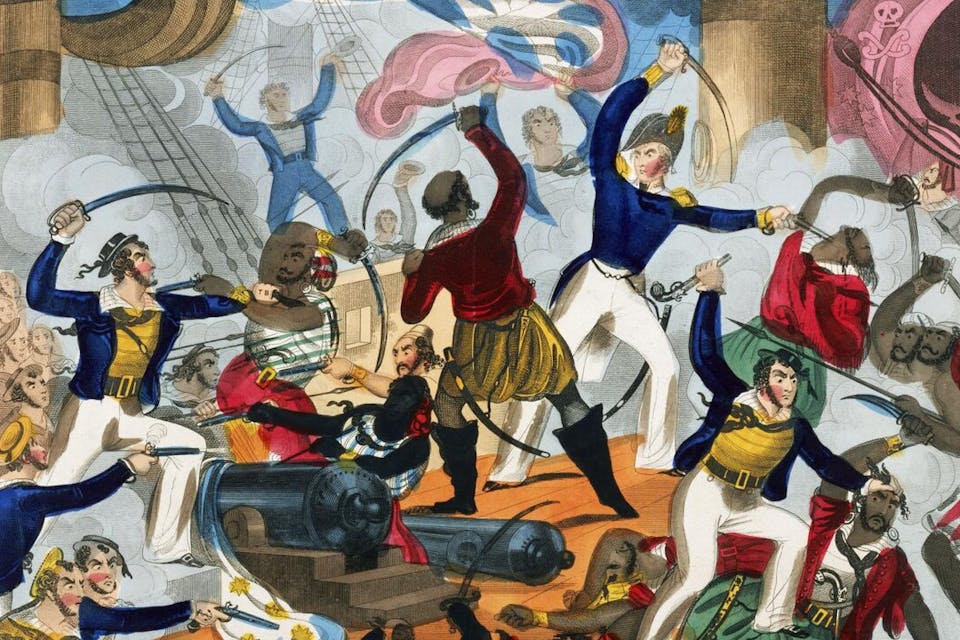
January 9, 2025
The Origins of “Tariff,” the Most International of Words
Brought from Arabic via Algerian pirates and Italian merchants, it only acquired its current meaning at the end of the 18th century.
“The most beautiful word in the dictionary,” Donald Trump called “tariff” in remarks made to an audience of business executives shortly before last November’s elections. Since the incoming president had in mind the word’s meaning rather than its sound, there’s no need to argue with him that other words are more mellifluous. It is ironic, however, that “tariff,” a term associated in our minds with national borders, national interests, and the putting of national before international priorities is in fact the most international of words, one whose history testifies to the essentially borderless nature of human contact.
English “tariff,” French tarif, Spanish tarifa, Italian tarrifa, Turkish tarife, Arabic ta’arifeh, Persian tarafeh, Hindi and Malay tarif: this is not a word, like “radio,” “television,” or “Internet,” that has been diffused around the globe by the technological innovations of the 20th century. Its dissemination goes back hundreds of years and was caused not by technology but by trade, the white slave trade included. (Does anyone still learn in grade-school history classes about the Barbary Coast wars, or that, in the same centuries in which millions of black Africans were being shipped as slaves to America, over a million white Europeans were enslaved in Muslim North Africa?) Moreover, the language instrumental in spreading the word, far from being a world-dominant one like English, or even a language at all in the ordinary sense, was a pidgin, known as Lingua Franca, that was spoken by merchants, sailors, pirates, and pirates’ victims from the Christian and Muslim countries of the Mediterranean basin. From it, our generic term “lingua franca” derives.
One of the earliest descriptions of Lingua Franca that we have comes from the 16th-century Spanish Benedictine abbé Diego de Haedo. In his account of three years of captivity in Algiers after pirates from the Barbary Coast (a region named for its Berber inhabitants) imprisoned the passengers of the ship he was sailing on and sold them into servitude, he wrote: